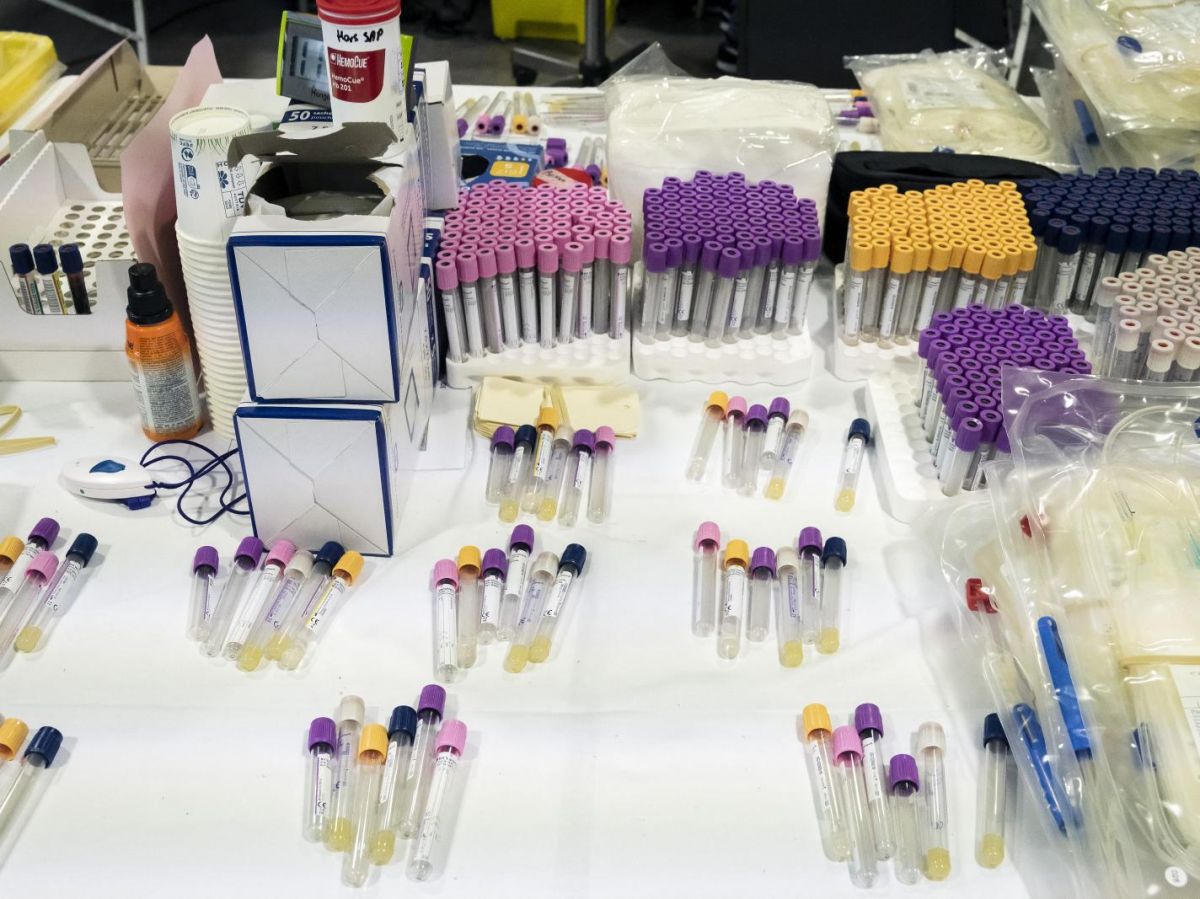“ This is a 15-year-old immuno-hematological cold case that has been resolved.", rejoices Thierry Peyrard, former director of the National Reference Center for Blood Groups (CNRGS) at theFrench Blood Establishment and current EFS Responsible Person for the quality and safety of blood products. It all began in 2011 when a patient of Guadeloupean origin was admitted to a Parisian hospital for scheduled surgery. On this occasion, she underwent a series of pre-transfusion tests which revealed a surprising peculiarity: this patient had an antibody in her blood that reacted with all the types of blood tested. In other words, she was incompatible with all donors!
An absent antigen
Beyond the complications that this could cause for her, the case of this patient intrigued the medical biologists who entrusted her file to the EFS, which carried out additional examinations with the assistance of the joint research unit UMR_S1134 – Integrated Biology of the Red Blood Cell (Inserm/Université Paris Cité/Université des Antilles/EFS Île-de-France). However, these did not allow the mystery surrounding this blood to be resolved. It was only in 2019 that new DNA analysis techniques were used to understand what was happening.", underlines Thierry Peyrard. To do this, the researchers were able, thanks to the high-throughput sequencing, analyze the patient's 22,000 genes and look for specific mutations in genes potentially linked to the expression of blood groups on red blood cells.
Read alsoAt the EFS, blood is the subject of all research
This is how the PIGZ gene was identified in the patient, which was mutated and of which she had inherited the same two mutated versions from her father and mother, what specialists call a homozygous mutation. This gene codes for an enzyme that fixes a sugar, called mannose, on a very specific structure on the surface of red blood cells. The addition of this sugar allows the creation of an antigen on the red blood cell, that is to say a substance capable of inducing the appearance of an antibody in a person who does not have it. Since the PIGZ gene is inactive in the patient, she is therefore devoid of this antigen, the latter having been named Gwada, in homage to the patient's overseas origins. The patient is therefore a carrier of the "Gwada negative" phenotype, that is to say she does not have the Gwada antigen. To date, she remains the only known person in the world with this case.
Transfusion difficulty
The existence of such a rare blood type poses a major medical challenge: ensuring the safety of transfusions in an emergency. However, the patient has already developed an antibody against the Gwada antigen, which means that a conventional transfusion (which would then be carried out with blood from Gwada-positive donors) could trigger an immune reaction whose severity is difficult to predict. Apart from the hope of finding compatible siblings (which was not the case here), the only solutions, outside of emergencies, are autotransfusion (taking the patient's own blood for a scheduled procedure) or regular conventional donations, which would then be frozen in the national rare blood bank.
Read alsoA 44th blood group system identified, solving over 30 years of mystery!
“ It is thus possible for people with a rare blood type to use a stock of red blood cells collected and frozen at -80°C which can be stored for 30 years. But in the event of the stock being exhausted or of a life-threatening emergency, a bag "as incompatible as possible" should be transfused, with an adjuvant drug treatment.", explains Thierry Peyrard. With this in mind, screening for this rare group will soon be undertaken, first targeting the patient's relatives, then Guadeloupe donors in the Antilles and those living in mainland France. The goal is to create a register of compatible donors by integrating their profiles into the national and international database of rare blood donors.
A new group system
On May 31, 2025, the results of this long survey were presented at the World Congress ofInternational Society of Blood Transfusion (ISBT) in Milan. EFS researchers saw the discovery of 48 made official thereth blood group system named after the gene involved, PIGZ, and currently comprising only one antigen, Gwada. Having a rare blood type isn't just a scientific curiosity. For those affected, it can become a source of real anxiety regarding their medical care, in the event of a hemorrhage or pregnancy.", underlines Thierry Peyrard. Psychological support and raising awareness among certain communities about the issue of targeted screening are now an integral part of the EFS strategy, in order to find the largest number of rare blood donors and thus ensure transfusion safety for all patients.
This discovery also highlights that the ABO and Rh (formerly Rhesus) systems, well known to the general public, reflect only a fraction of the complexity of human blood. Today, there are nearly 400 antigens, which are organized within these 48 systems. Since 2012, 17 new systems have been recognized", adds the researcher. Among them, 10 were identified by the EFS teams, who are particularly at the forefront of research on this subject.
Around 200 different blood types are classified as "rare" in humans. In France, it is estimated that 1 million people carry a rare blood type, but only about 20,000 are known, which is the very tip of the iceberg! To ensure their safety and for research to continue, every blood donation can prove to be of vital importance. Also, with the summer holidays approaching, the EFS is more mobilized than ever in its various Donation Houses and during mobile collections to welcome donors.


